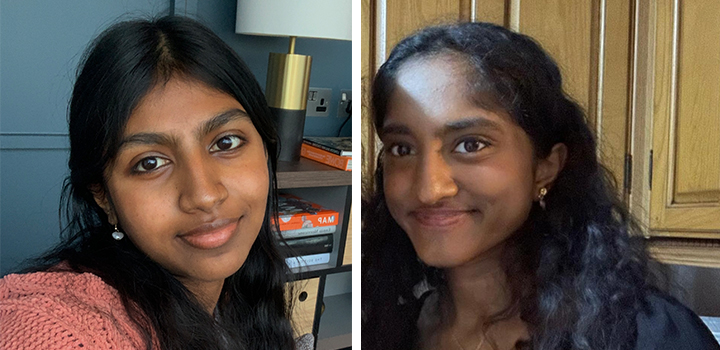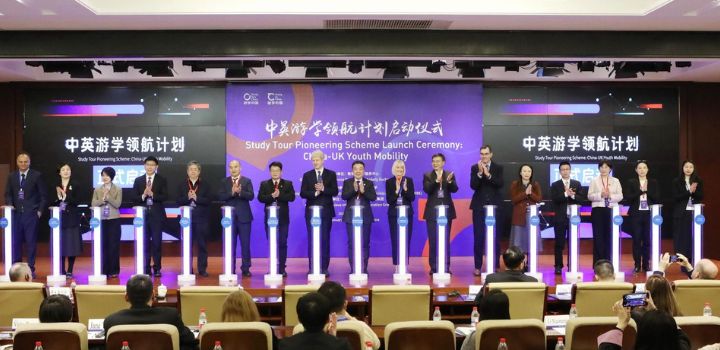See it and be it: Big Sister Little Sister supporting gender diversity in Computing
By: Communications

We caught up with Debbie Taylor, Lecturer in Computing Sciences at UEA, to discuss why she swapped industry for education, her hopes for a more diverse future in tech, and why her Big Sister Little Sister programme is so important to help address gender disparity in the subject.
What inspired you to create the Big Sister Little Sister mentoring programme?
DT: I spent 25 years working in industry. At school, I struggled – especially with maths – and I now know I’m dyslexic, dyspraxic, and discalculic, though I didn’t know that back then. I didn’t go to university straight away; I went straight into work. Of those 25 years, around 15 were in IT and computing-related roles. I even set up my own consultancy firm. Eventually, I hit a midlife crisis, but instead of buying a motorbike or a sports car, I decided to go to university. It was an unconventional choice, but it felt right.
I had always been interested in computing. Friends got tired of hearing me say ‘I’d love to study this properly’. They encouraged me – strong-armed me, really – by saying: ‘You’re in a position where you don’t need to worry so much about money. Your career’s steady, but you’re bored. So do it’. I never thought I’d get into UEA, but I did. I started with the foundation year, and at the time, there were only two women in that cohort. When I moved into year one, that number grew to maybe 10 or 15, but it was still very low. Over the next few years, I noticed that many of the female students came to me with questions they didn’t feel comfortable asking male lecturers or classmates. I’ve always been quite open – I’ll talk to anyone – and I think being older helped too.
I spoke to teaching staff, including the Teaching Director, and mentioned this gap. I asked if I could set up a mentoring programme specifically for women in computing science. Somewhere we could have open conversations and build support networks.Ultimately, I created the programme to help female students feel confident in computing science and to remind them that if they put in the time and effort, they will succeed.
Could you share some of the most rewarding moments you’ve had from it?
DT: One is our increased outreach. We now run iBelong sessions in the summer for local schools, funded by UEA. These are staffed entirely by female faculty and students.In 2024, we hosted about 100 female and non-binary students. We held a Q&A panel featuring faculty and members of the Big Sister Little Sister group. The feedback was fantastic. As a result, this year we’re expanding it to two days, expecting around 200 attendees.
Have you seen other impacts – on both mentors and mentees?
DT: Absolutely. The programme includes everyone, from foundation year students to master's students and alumni. When new students join, especially in the foundation year, their confidence tends to be low. Our first event is usually in week one or two – a pizza night – and it’s amazing to watch how much they grow over the year. They get to know other women and non-binary students in computing, and they build friendships and networks. You see them begin to believe they actually belong here. We’ve also seen returning students gain enough confidence to become mentors themselves. It’s not just formal meetups – many of them keep in touch outside the programme and form lasting connections.
Are there recurring challenges you've noticed for women and non-binary students entering computing?
DT: Confidence is a big one, and imposter syndrome plays a huge role. It’s something I’ve struggled with too. Many of the women and non-binary students coming into computing have had to fight to be taken seriously, especially in school, where they’re often told – implicitly or directly – that computing is more suited to boys. That messaging sticks. There’s also the problem with representation in earlier education. GCSE and A-level Computer Science are still male-dominated. That can discourage girls from pursuing it, especially when they don’t see people like themselves succeeding in the subject.
What are some common misconceptions about women and gender-diverse people in computing?
DT: One of the biggest is that women aren’t interested in computing or gaming. That’s simply not true. Another is that women don’t enjoy coding or aren’t good at maths, which is again completely unfounded. There’s also a deeply ingrained idea that women won’t stay in tech long-term because they’ll leave to start families. I’ve heard that firsthand in industry – being told I wasn’t considered for a big project because I’d ‘probably want to have kids soon’. That’s a false and damaging assumption.The truth is that success in computing should come down to what’s in your mind, not your gender.
Would you say gender bias is still a major barrier in computing?
DT: Absolutely. From school all the way through to industry, gender bias is still one of the biggest barriers. It’s getting better, especially in tech companies that now recognise the value of diversity, but we’ve still got a long way to go.
It’s like cutting out half the population’s talent pool?
DT: Exactly. And if you include non-binary people, we’re talking about sidelining closer to 60–65% of potential talent. It makes no sense. And yet, those assumptions persist, particularly in schools, where girls interested in computing are still often treated as unusual or even discouraged.
So, it’s not just about breaking the glass ceiling – it’s about putting the ladder down for others?
DT: That’s what Big Sister Little Sister is all about. It’s not just about reaching the top yourself; it’s about helping others come with you. Mentoring, encouragement, community – all of it plays a role in building a more inclusive future.
What excites you most about the next generation entering computing?
DT: Diversity. That’s the biggest and most important factor. Diversity of gender, race, background and experience. It’s how we build better systems. Take AI, for example, where facial recognition works better for white men because that’s the demographic it was trained on. That’s an issue. If we want fair, accurate systems, we need to train them on diverse data. That only happens when you have a diverse set of people building them. The more diverse the field becomes, the better the outcomes – not just in ethics, but in technical quality and innovation.
Do you have a personal bugbear or myth about computing careers you’d love to debunk?
DT: My biggest one is that computing is a ‘man’s subject’. It’s not. Computing is for everyone. It’s about problem-solving, creativity, and thinking outside the box. Your gender, race, or background has nothing to do with your ability to succeed in this field. And please, can we get rid of the ‘guy in a hoodie in a basement’ stereotype? Not all of us are hackers typing away in the dark. Sure, some students thrive in that kind of environment, and that’s fine, but computing is so much broader than that. We’re thinkers, designers, innovators. Anyone who’s curious and creative can thrive in computing science.
If you could give advice to your younger self – or to any woman or non-binary person considering computing – what would you say?
DT: Just go for it. Don’t worry about what anyone else thinks or says. If you’re passionate about it, do it. Life’s too short to end up in a job you hate.There’s a saying: ‘Do what you love and you’ll never work a day in your life’. I believe that. g hours, but because I love what I do, it doesn’t feel like work. If it turns out you don’t enjoy it or you’re not suited to it you can always pivot, but don't let fear or stereotypes hold you back.
If you are looking to start university in September 2025 and are still thinking about your options, consider joining a UK Top 25 university this September through Clearing
Related Articles

Mentees to mentors: Supporting girls and non-binary students in Computing Sciences
Second-year Computing Science students, Nithya and Joy-Moriah, talk about their roles as mentors with the Big Sister Little Sister programme, what interests them about the subject, and their hopes for the future.
Read more
UEA strengthens academic relations through new study scheme
The University of East Anglia has joined a major new initiative designed to boost cultural and academic exchange between students in China and the UK.
Read more
Indian and UK institutions unite to strengthen cybersecurity education in India
A UK-India partnership aiming to train 100 faculty members on advanced cybersecurity topics, will focus particularly on female staff in tier-2 cities to become catalysts for change in their institutions and communities.
Read more